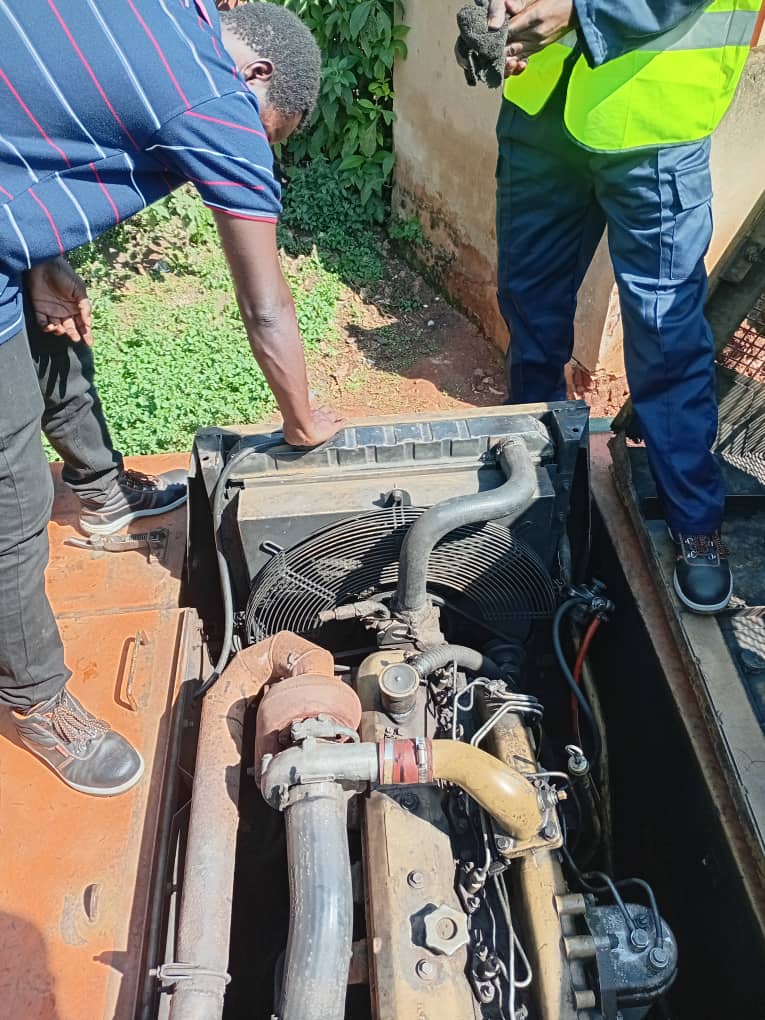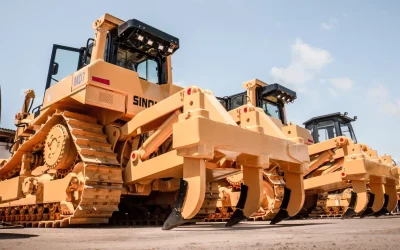Importance of Oiling Machines: What Happens When You Skip an Engine Oil Check?
Importance of Oiling Machines isn’t anything dramatic. It wasn’t expensive or hard to fix. It was… something you could have avoided in less than two minutes. It was skipping the engine oil check.
Yes, that little dipstick could be the difference between finishing your job smoothly or calling in emergency repairs that will cost you a fortune.
Every Excavator Has a Heart
Your engine? That’s the heart. And engine oil? That’s the blood running through it. It keeps everything moving, reduces friction, and prevents overheating. Without it, every part starts to grind against the other, wearing itself out slowly.
Yet, shockingly, many operators fire up their machines every morning without a single glance at that tiny dipstick. They assume the machine is ready to go – until it isn’t. And by the time they notice, the damage is done.
The Simple Step That Saves the Day
As an operator at a site you should use a dipstick, wipes it clean, dips it back in, and looks closely at the oil level.
As you check, ensure that you identify that:
• Is the oil at the right level?
• Is it the right color and consistency?
• Has it been changed recently?
This takes less than two minutes. Less than two minutes to prevent thousands in repair bills. Less than two minutes to keep your day running smoothly.

Yet so many skip it and its the only way of keeping your machine in good state.
Why Engine Oil Matters More Than You Think
Engine oil isn’t just a lubricant. It’s a life force. Without it these are some of the things that may result into;
• Your engine runs hotter and hotter.
• Metal parts grind and tear at each other.
• Power drops.
• Fuel consumption skyrockets.
• Repairs get expensive – sometimes even requiring a full engine replacement.
Every day, a simple oil check can prevent all of that. Every day, it’s the difference between a smooth-running machine and a costly disaster.
Operator Habits Make or Break Machines
Many operators think maintenance is “the mechanic’s job.” Wrong. The first line of defense is you, the operator. The habit of checking oil levels before starting an excavator isn’t just good practice – it’s respect. Respect for the machine. Respect for your work.
Before you even start the engine, make checking the oil as routine as putting on your boots. Don’t skip it. Don’t rush it. This tiny act can save hours of downtime and thousands of shillings in repair costs.
How to Do a Proper Oil Check
Follow these steps to ensure proper oil routine habits:
1. Park on Level Ground; because uneven ground can give false readings.
2. Turn Off the Engine and Wait; Let it cool for a few minutes.
3. Pull Out the Dipstick and Wipe It; You want a clean reading.
4. Dip It Again and Check the Level; Make sure it’s between the minimum and maximum marks.
5. Check the Oil Color and Consistency; Clean oil is golden-brown. Black, milky, or gritty oil is a warning sign.
6. Top Up If Needed; Only use the manufacturer-recommended oil type.
See? Less than two minutes. That’s it. Quick, easy, and lifesaving.
Signs Your Oil Check Could Save You
Sometimes it’s obvious when your oil is in trouble and these are some of the outcomes if you neglect it:
• Strange noises from the engine.
• Smoke from the exhaust.
• Loss of power or slow response.
• Unusual fuel consumption.
Other times, the signs are subtle. That’s why the daily check matters – it catches problems before they turn into disasters.
Real Stories from the Field i witnessed while at the site.
Certain operator ignored oil checks for a week. The excavator overheated, and the engine seized. Repair cost? More than three times the cost of a simple oil change and daily check. Lesson learned: machines talk to you – you just need to listen.
Another operator I know made checking oil his first step every morning. One day, he spotted low, dirty oil before starting. He topped it up and avoided a costly breakdown that could have delayed an entire project. Just two minutes saved him thousands.
Make It a Habit, Not a Task
Great operators aren’t just people who can dig fast or handle heavy machinery. They’re people who respect their machines. They know that a daily oil check is more than maintenance – it’s protection. And it’s about pride. Pride in doing the job well. Pride in knowing your machine will last longer and perform better.
So tomorrow, before you hit that start button, take the time to check the oil. Listen to your excavator. It’s telling you exactly what it needs.
At Friendly Heavy Equipment Machinery Training, we teach operators not just how to operate machines, but how to care for them. Because the best operators aren’t just workers – they’re guardians of the machines that help them get the job done.
Start your day right. Check your oil. Protect your machine. Respect your work. And remember: a little effort today prevents a big headache tomorrow.




